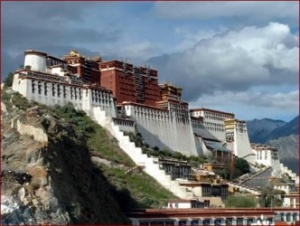Dalai Lama steps down from political role

The exiled spiritual leader of Tibet, the Dalai Lama, has announced plans to step down from his political role.
The announcement was made during a speech marking the 52nd anniversary of the Tibetan people’s peaceful uprising of 1959 against communist China’s repression in the Tibetan capital, Lhasa.
During his speech, the Dalai Lama commended China on their economic growth and potential to contribute to human progress and world peace, but urged the nation to develop “greater transparency”.
He then laid out plans to devolve his political responsibilities to an elected figure beginning March 14th.
“As early as the 1960s, I have repeatedly stressed that Tibetans need a leader, elected freely by the Tibetan people, to whom I can devolve power,” he said.
“Now, we have clearly reached the time to put this into effect.
“My desire to devolve authority has nothing to do with a wish to shirk responsibility. It is to benefit Tibetans in the long run. It is not because I feel disheartened.”
Tourism in Tibet
Lhasa is one of the most featured cities in the world.
This is not only because of its remoteness - its high altitude, at 3,650 meters, limits accessibility - but also because of its impressive heritage of over a thousand years of cultural and spiritual history.
Differing from the inland cities and even the majority of destinations elsewhere in Tibet, Lhasa is unique with an allure all of its own.
In the Tibetan language, Lhasa means the Holy Land or the Buddha Land.
It is the centre of Tibet’s politics, economy and culture. The city has also been named as one of the 24 historical and cultural cities of China.
As the beautiful capital city of Tibet Autonomous Region (TAR), Lhasa is situated in the South Central part of the region, on the North bank of the Kyichu River (Lhasa River) in a mountain-fringed valley.
However, tourists seeking to access the city may have to wait a little longer, with the launch of the first luxury train service from Beijing to Tibet reportedly postponed from April until next spring.

